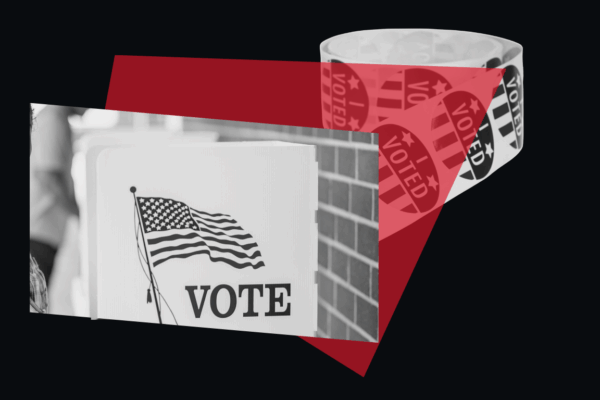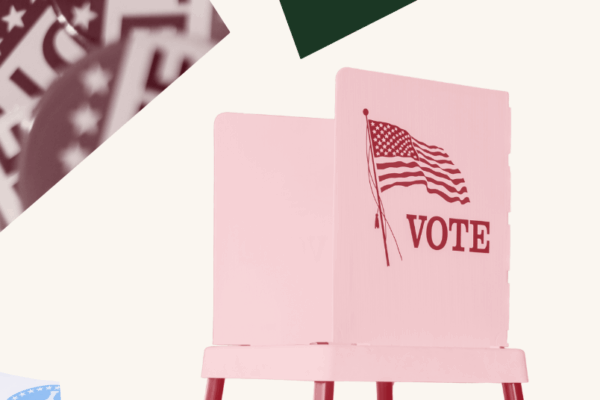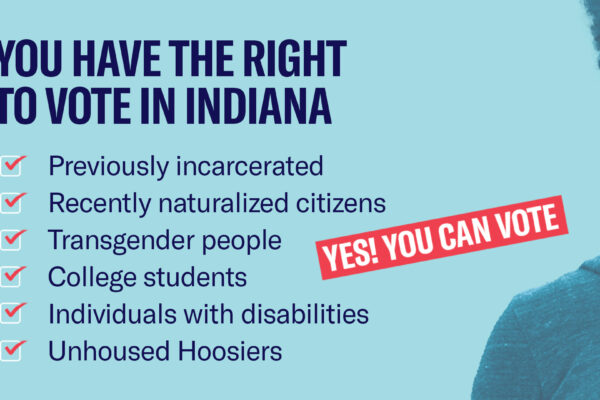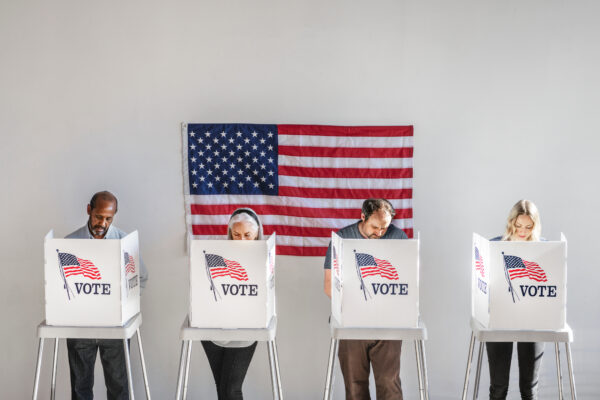Election Day is Tuesday, November 3, 2026.
To register to vote or check your registration, visit IndianaVoters.in.gov.
Who Is Eligible to Vote in Indiana?
You have the right to vote in Indiana if:
- You are both a U.S. citizen and a resident of Indiana;
- You will be at least 18 years of age on or before Tuesday, November 3, 2026;
- You are not currently in prison after being convicted of a crime;
- You have lived in the precinct where you vote for at least 30 days prior to the election; and
- You are registered to vote.
There are a lot of misconceptions about who can and cannot vote in Indiana. Let’s be clear — you can vote in Indiana if you:
- Have been previously incarcerated
- Are transgender
- Are in college
- Have a disability
- Are a recently naturalized citizen
- Are unhoused
Important Dates
- April 6, 2026: Voter registration closes (Primary)
- April 7, 2026: Early voting begins (Primary)
- May 5, 2026: Primary Election Day
- May 19, 2026: Registration reopens
- October 5, 2026: Voter registration closes (General)
- October 6, 2026: Early voting begins (General)
- November 3, 2026: General Election Day – Polls are open from 6 a.m. to 6 p.m. local time.
Photo ID Requirements
Whether voting early or on Election Day, Hoosier voters must present a photo ID to vote. In accordance with state law, your ID must:
- Display your photo;
- Display your name, and the name must conform to your voter registration record. (Conform does not mean identical.);
- Display an expiration date and either be current or have expired sometime after the date of the last General Election; and
- Be issued by the State of Indiana or the U.S. government.
In most cases, an Indiana driver's license, Indiana photo ID card, Military ID, or U.S. Passport is sufficient.
Note: Due to recent changes in state law, IDs from state colleges and universities will no longer be accepted.
If you are unable or unwilling to present an ID meeting these requirements, you may cast a provisional ballot. If you cast a provisional ballot, you have until noon 10 days after the election to follow up with the county election board and either provide the necessary documentation or affirm one of the law’s exemptions applies to you.
Voters may also submit an application for a free photo ID at the Bureau of Motor Vehicles. The Secretary of State provides further information.
Those Without a Photo ID
Exemptions to Indiana’s voter ID law exist for those who cannot afford an ID, people with a religious objection to being photographed, and those living in state-licensed facilities that serve as their precinct polling place. On Election Day, you can cast a provisional ballot and then visit the county election office within 10 days to prove you qualify for an exemption. Alternatively, you can vote early in-person and claim your exemption there.
A free ID card may be issued by the Bureau of Motor Vehicles (BMV) if you are at least 18 years old, a United States citizen, and you are eligible to vote. However, when you apply for a new driver’s license, permit, or identification card, you must present original versions or certified copies of the following documents:
- One document proving your identity;
- One document proving your lawful status in the United States;
- One document proving your Social Security number; and
- Two documents proving your Indiana residency.
Registering to Vote for the First Time
Individuals registering for the first time (whether in person or by mail) must submit an Indiana driver’s license number or the last four digits of their SSN with their application, and the county voter registration office or election official must be able to match the applicant with an existing Indiana identification record bearing the same name, date of birth, and identification number set forth in the voter registration application.
- If a registrant cannot or does not provide an Indiana license or the last four digits of their SSN, or if that process does not yield a match, the registrant must provide additional documentary proof of residency (DPOR): (1) Current and valid photo identification, or (2) Current utility bill, bank statement, government check, paycheck, or government document that shows the name and residence address of the voter stated on the voter registration application.
- Although failing to provide the required DPOR will not prevent an individual from registering to vote, the registrant must ensure that the DPOR is provided to the county registration office before the close of polls on election day for their ballot to be counted. If they do not follow up with DPOR before going to vote during early voting or on election day, they can bring DPOR when they go to vote in person and present it there.
- Note: People may not know they need to provide DPOR, especially if they registered by mail or if the information they submitted could not be matched with existing records. We’d suggest that anyone that has recently moved or does not have a driver’s license number in Indiana should plan to bring DPOR, which can be electronic.
- Exceptions: DPOR requirements do not apply to people who are absent uniformed services voters or overseas voters or are entitled to vote in a manner other than in person under federal law.
Stay Informed
Sign up to be the first to hear about how to take action.
By completing this form, I agree to receive occasional emails per the terms of the ACLU’s privacy statement.
By completing this form, I agree to receive occasional emails per the terms of the ACLU’s privacy statement.





